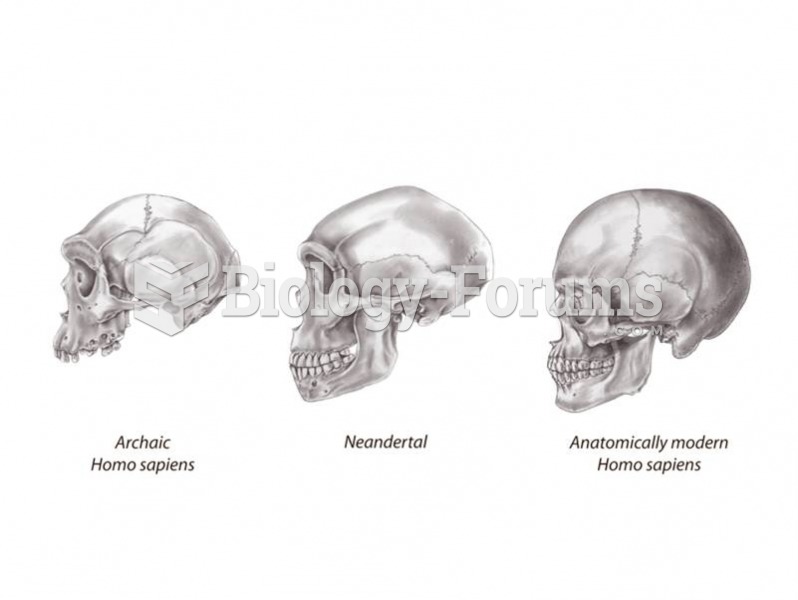|
|
|
Did you know?
The familiar sounds of your heart are made by the heart's valves as they open and close.
Did you know?
Asthma occurs in one in 11 children and in one in 12 adults. African Americans and Latinos have a higher risk for developing asthma than other groups.
Did you know?
Patients who have undergone chemotherapy for the treatment of cancer often complain of a lack of mental focus; memory loss; and a general diminution in abilities such as multitasking, attention span, and general mental agility.
Did you know?
Limit intake of red meat and dairy products made with whole milk. Choose skim milk, low-fat or fat-free dairy products. Limit fried food. Use healthy oils when cooking.
Did you know?
Cyanide works by making the human body unable to use oxygen.
 Variations on a theme: archaic Homo sapiens, Neandertal, and anatomically modern Homo sapiens skulls
Variations on a theme: archaic Homo sapiens, Neandertal, and anatomically modern Homo sapiens skulls
 The Black Death spread over much of Europe in a three-year period in the middle of the fourteenth ce
The Black Death spread over much of Europe in a three-year period in the middle of the fourteenth ce





